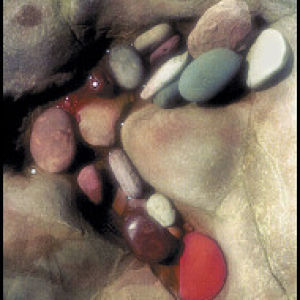It ain't half hot Mum
Hector MacDonald was born March 4, 1853 to William and Ann MacDonald on a farm near Dingwall, Ross-shire, Scotland. His father was a crofter and stonemason. Like many of his time, Hector MacDonald was a Gaelic speaker. He spent his early years as a barefoot boy working on the croft, or farm. When he was only fifteen years old, young Hector MacDonald was apprenticed to a fabric dealer where he became a clerk in a country store. When he was eighteen, he joined the Gordon Highlanders as a Private. A legend was about to be born.
A rifleman for the next eight years, his first opportunity to distinguish himself came in Afghanistan. During the Afghan campaign in 1879, he was with a small patrol who found themselves ambushed by about two thousand enemy troops. Although only an enlisted man of low rank, MacDonald took command of his comrades and led them in a brilliant bayonet charge that drove off the enemy. The charge against unbelievable odds not only saved MacDonald's patrol, but exposed a plot to kill his commanding officer and his staff.
Holding the rank of Colonel during the Sudan campaign, he again displayed uncommon bravery by beating back a Dervish charge upon the British flank, averting a disastrous defeat.
During the Boer War Hector MacDonald continued to distinguish himself with numerous victories and brilliant charges. It was during this time he acquired the nickname, "Fighting Mac".given by an admiring press and the troops under his command. They loved him because he respected them, unlike most of the upper class officers.
The successes of this tenant farmer’s son provoked an almost unparalleled jealousy and envy, added to which was the prejudice felt by British officers for comrades who "smell of the barracks." Although a fierce warrior, he was a sensitive man and was aware of the criticism rankling in the hearts of his brother officers. Consider also that he was a veteran of many battlefields; he was given to spells of brooding, which undermined his health.
It was not long before he became a nervous wreck. He was in this state when, after the Boer War, he was placed in command of the British army in Ceylon (now Sri Lanka).
Ceylon furnished MacDonald with an inactive and uninteresting military command. At the same time he was presented with temptations in the form of several young men who were interesting and sexually active. He ruffled more feathers by forcing the unkempt and ill-disciplined British troops, most of them sons of British planters, to show more spit and polish. He offended the Governor, Sir Joseph West Ridgeway, when he yelled at him to get off the parade ground during a drill. He declined the social invitations of the upper crust British community and instead spent time with local people.
Rumors began circulating that he was having a sexual relationship with the two teenage sons of a local businessman, and that he was patronizing a "dubious club" attended by British and Sinhalese youths. Matters came to a crisis when a tea-planter informed Ridgeway that he had surprised Sir Hector in a railway carriage with young men.
There was a threat of even more to come, involving up to almost a hundred witnesses who allegedly had witnessed homosexual activity. Governor Ridgeway told MacDonald to return to London, telling the General that his main concern was to avoid a massive scandal: "Some, indeed most, of his victims ... are the sons of the best-known men in the Colony, English and native", he wrote, noting that he had persuaded the local press to keep quiet in hopes that "no more mud" would be stirred up.
A few days later, a shot rang out in a Paris hotel room and Major General Sir Hector Archibald MacDonald was dead.
The aftermath was instant and unforeseen by the Government and the military establishment. The suicide of the war hero caused great public shock. For the Government, part of the shock was the discovery that MacDonald had a wife and a son.
In an attempt to cover things up, the government planned for the General’s funeral to be held in secret in Edinburgh. They rushed the effort to bring his body home quickly and bury him in near secrecy.
Despite the Government effort to keep it a secret, the word got out. A staggering number of people turned out. A crowd of 30,000 people came to the funeral to pay their last respects.

Comments
Sign in or get an account to comment.


